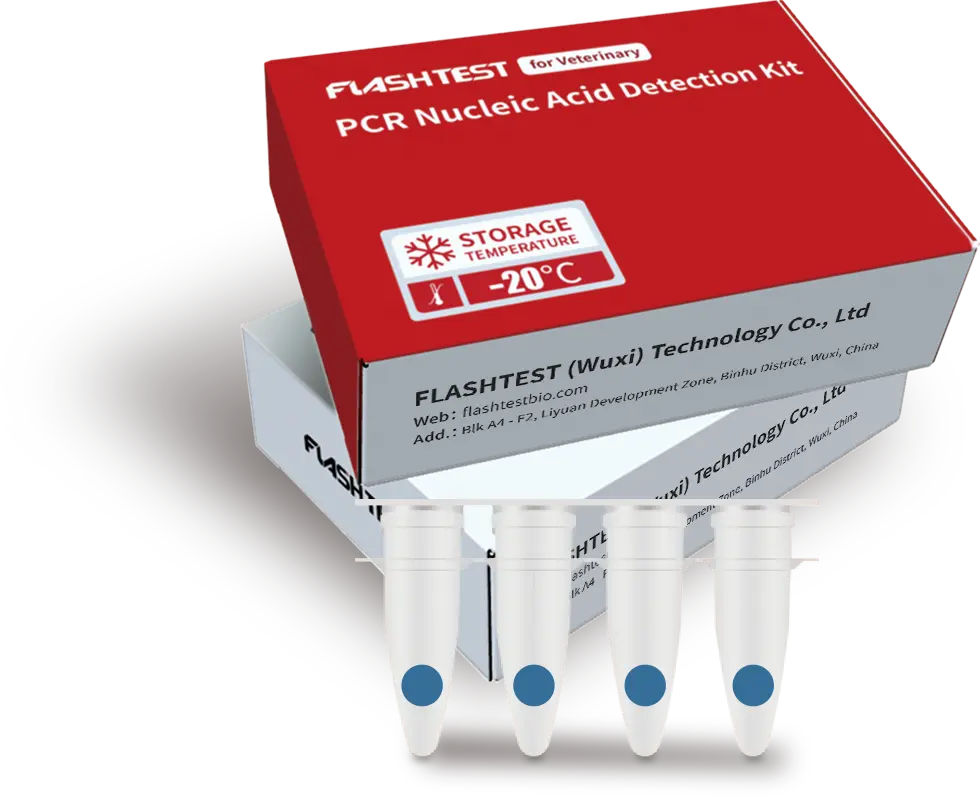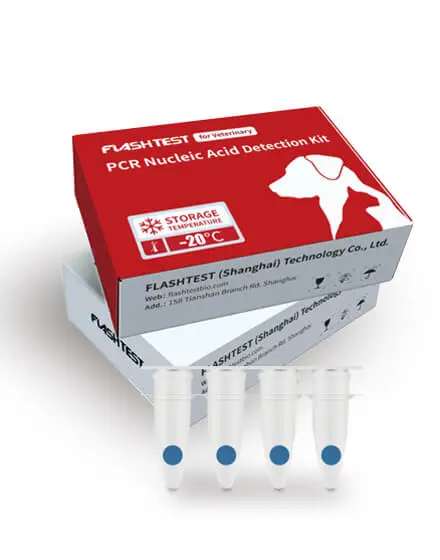- +1-707-722-7066
- care@flashtestbio.com
English

In the context of pets, PCR detection kit is commonly used to diagnose various genetic diseases or conditions in dogs, cats, and other animals. It involves the extraction of DNA from a sample (such as blood, saliva, or tissue), followed by a series of heating and cooling cycles to amplify specific DNA segments of interest. These amplified DNA segments can then be analyzed to determine the presence or absence of certain genetic markers associated with particular diseases or traits in pets.
PCR testing for pets is a valuable tool in veterinary medicine, allowing for early detection, accurate diagnosis, and informed decision-making for the health and well-being of animals.




Early Detection of Infectious Diseases: PCR can identify the presence of pathogens such as viruses, bacteria, and parasites at the molecular level, even before clinical symptoms become apparent.

Efficient Diagnosis of Genetic Disorders: PCR enables the detection of specific gene mutations associated with inherited diseases.

Accurate Identification of Pathogens: PCR allows for accurate identification and differentiation of different strains or subtypes of pathogens.

High Sensitivity and Specificity: PCR offers excellent sensitivity and specificity, allowing for the detection of a small number of pathogen particles or genetic material.The high sensitivity of PCR minimizes false negatives, ensuring accurate diagnosis and treatment decisions.

1. Sample collection: Collect a suitable sample, such as blood, saliva, or swabs, from the pet.
2. DNA extraction: Extract DNA from the collected sample using a DNA extraction kit or other suitable methods.
3. PCR setup: Prepare the PCR reaction mixture, which typically includes the DNA template, primers specific to the target DNA sequence, nucleotides, and DNA polymerase.
4. PCR cycling: Set up the PCR machine with the appropriate cycling parameters. This includes denaturation, annealing, and extension temperatures and times.
5. Gel electrophoresis: Analyze the amplified PCR products using gel electrophoresis. Separate the amplified DNA fragments based on size and visualize them under UV light.
6. Result interpretation: Interpret the PCR results based on the presence or absence of the target DNA sequence. Consult with a veterinarian or a geneticist if further interpretation or validation is required.

1. Health Monitoring: Pet PCR tests can detect various diseases and health conditions in pets, helping veterinarians monitor their overall health and well-being.
2. Disease Diagnosis: Pet PCR tests are used to diagnose specific diseases such as parvovirus, distemper, and feline leukemia virus in pets, allowing for timely treatment and management.
3. Travel Requirements: Many countries and airlines require pets to undergo Pet PCR testing for certain diseases before traveling to prevent the spread of infectious diseases.
4. Breeding Programs: Pet PCR tests are often used in breeding programs to screen for genetic diseases and ensure the health of offspring.
5. Shelter and Rescue Operations: Pet PCR testing can help identify infectious diseases in animals entering shelters or rescue operations, preventing the spread of illnesses among other animals.

Get In Touch With Us Now!
Tel:
+1-707-722-7066Email:
care@flashtestbio.comAdd:
Blk A4 - F2, Liyuan Development Zone, Binhu District, Wuxi, China